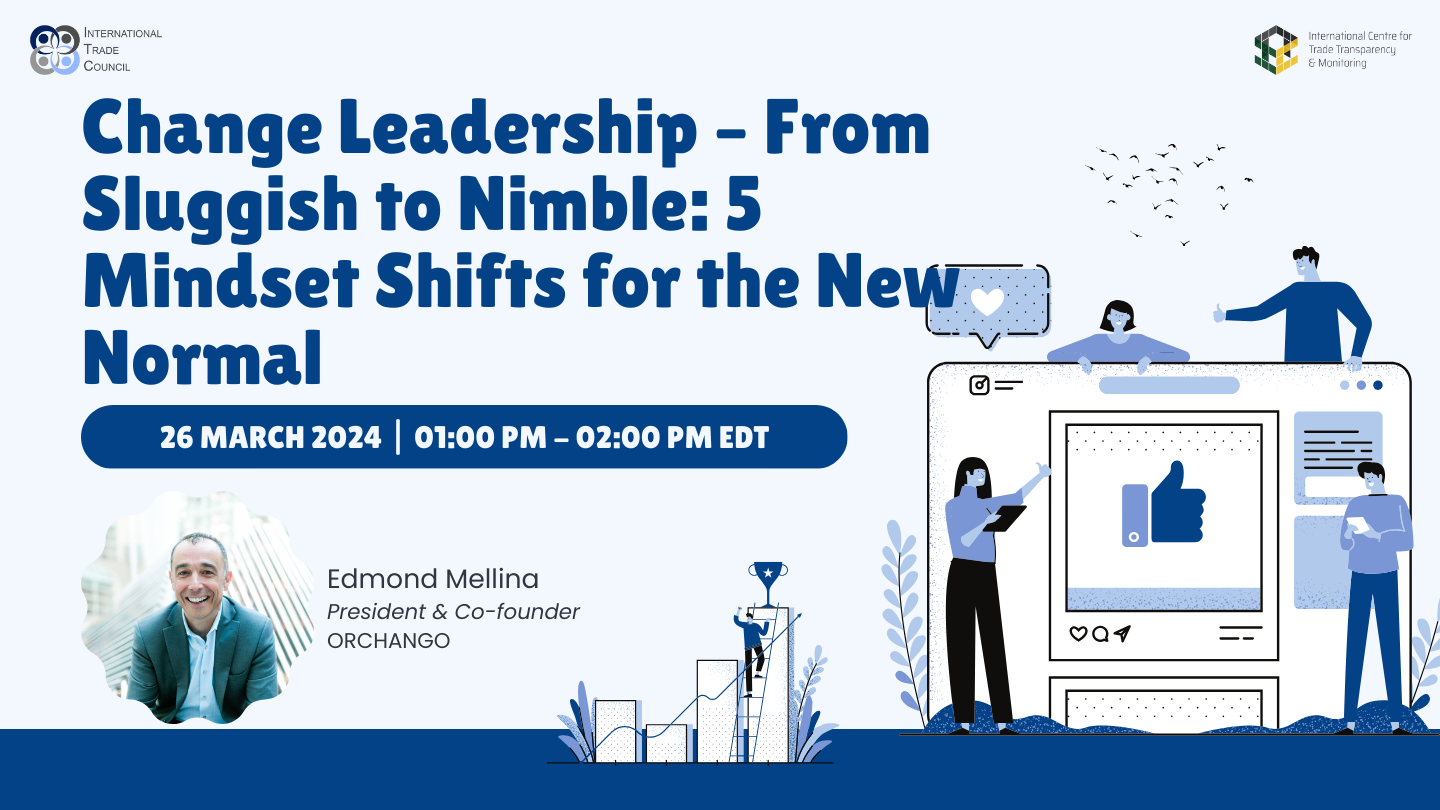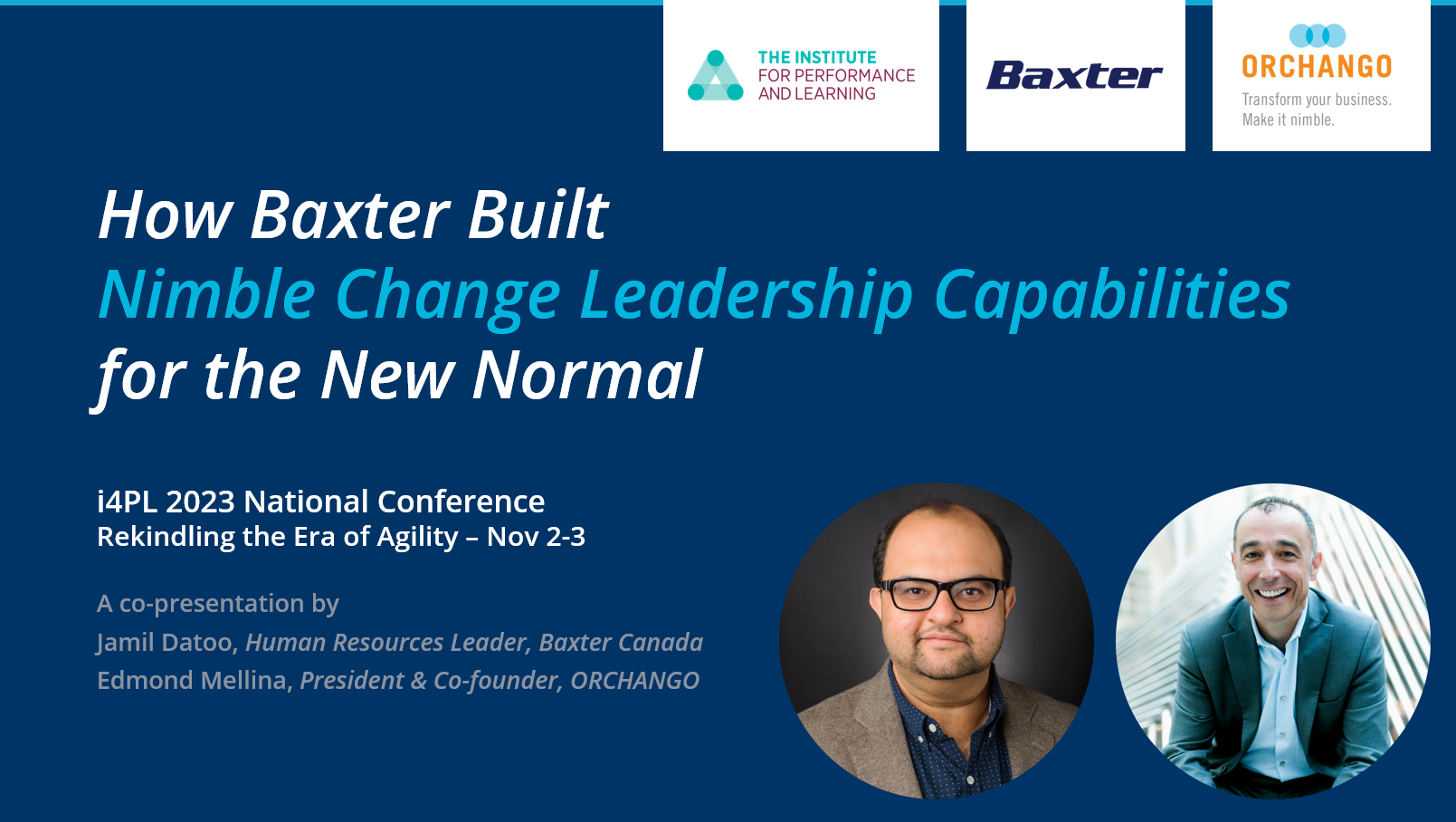When talking with C-suite executives and other transformation leaders about leading through change in the…
Executives don’t cry – but maybe they should

Within a week, two celebrity CEOs broke down while making separate speeches at press conferences! The unusual events prompted ORCHANGO’s president & co-founder Edmond Mellina to write this opinion piece, published by Canadian HR Reporter…
Reading time: 5 minutes
It’s rather unusual to see a renowned CEO overcome with emotion and shedding tears at a press conference. Yet, it happened twice within a week last October!
First it was Bill Owens, retiring CEO of Nortel Networks Corp. As he was announcing his passing of the baton, the senior executive almost broke down, his eyes welling with tears and his voice choked with emotion. Owens is a former admiral who held the second most powerful job in the U.S. Armed Forces. Wow, tough boys do cry.
One week later, it was EnCana Corp.’s Gwyn Morgan. The celebrity CEO held a surprise press conference in Calgary to announce his resignation from the oil and gas giant. Like Owens, Morgan had a hard time hiding his emotions in front of the packed room. He had to stop for several minutes to collect his thoughts while shedding tears. Wow, even star CEOs cry.
Toxic emotions
On the flip side, I have seen scores of senior executives readily show “toxic emotions” in public.
There’s the CEO of a Canada-based international company who erupted with anger, calling a junior employee “a jerk” because he wasn’t performing to his expectations; a senior vice-president vituperating front-line management for not getting his “brilliant strategy”; or the divisional president who replied “you’re a liar” — with copy to all recipients — to an e-mail from a subordinate correctly stating their current technology wasn’t capable of handling a specific scenario.
I suspect these executives derive therapeutic value from releasing their negative feelings. It might make them feel better, but what about the rest of the organization?
Toxic emotions induce fear, break down trust and kill engagement.
Wholesome emotions
The type of feelings that overcame Owens and Morgan belong to the opposite end of the emotional spectrum.
I call them “wholesome emotions.”
Publicly sharing such emotions creates a bond between leaders and followers. They show senior managers are human, just like their employees. Since there is no spin to wholesome emotions, the message they communicate is pure and genuine. They enable leaders to connect emotionally with their organization. They play a key role in engaging people.
They are truly “wholesome,” in the sense they promote the organization’s well-being.
Why expressing wholesome emotions is hard for executives
If senior managers don’t seem to have a problem expressing toxic emotions, they are much more challenged when it comes to wholesome emotions. I believe there are two primary explanations.
First, there is the John Wayne/Jack Welsh effect. During childhood, the men who now hold senior positions were told repeatedly: “boys don’t cry.” The silver screen adventures of Wayne and others reinforced this belief. As these boys grew up, they carried into adulthood and the workforce their conditioning.
Business legends such as the steely Welsh replaced Wayne in their collective psyche. The original “boys don’t cry” motto became “executives don’t become emotional.”
As for women, being seen as tough as their male colleagues has often constituted a key strategy for breaking through the glass ceiling and moving to the corner office. Therefore, ambitious women also tend to suppress their wholesome emotions at the office.
Second, there is the Anglo-Saxon culture, which prevails in our businesses. Since the culture encourages a tight control on emotions, it’s not surprising Canadian leaders are uncomfortable displaying their feelings in public. Once and a while it’s fine to let go of toxic emotions, but wholesome emotions are an absolute no-no.
Apparently, the retirement press conference is an exception to this rule.
Epic-fail story: when I broke down at the podium
Unfortunately, by keeping their wholesome emotions under tight restraint, corporate leaders fail to tap into the gold miner they represent. A personal example might help illustrate.
Several years ago, when I was still in the corporate world, I had the opportunity to lead an outstanding team through a large-scale change initiative. As the project progressed, I became extremely proud of the attitude and accomplishments of the team members. We organized a big celebration party at the end of the project for the 100 or so people who constituted the core team.
We started with some drinks and canapés, then came the time for speeches. A fellow executive delivered the first one. His allocution was well-constructed and polished. It was also quite funny, filled with great anecdotes. After his speech, I replaced him on the podium. I was so proud of all the folks in attendance that I had decided to speak straight from my heart.
Well, that was the intent, but I didn’t go very far. I quickly became overcome with emotions — the kind that a parent experiences when telling his kids how proud he is of them for having done something truly special. Like Gwyn Morgan, I had to pause to try to compose myself. After a couple of attempts, I managed to tell the crowd that I was too proud of them to make sense, and I suggested we keep going with the celebration.
As I stepped down from the platform, I was rather ashamed with my performance. “Executives don’t become emotional” and “What kind of leader are you?” were some of the negative thoughts I had…
But what happened next was both surprising and interesting. One by one, people came to see me. They were saying things along the line of: “Thanks for what you said. We really appreciate it. It means a lot to us.”
Given my above comment about the Anglo-Saxon culture, it’s important to note this experience occurred in English Canada. Even in a culture that discourages their public display, people respond well to wholesome emotions.
Wholesome emotions during times of change
Similarly, it’s amazing to see what happens during a change initiative when a leader admits to his team he is unsure about the exact route forward and asks for help. By doing so, he is exhibiting wholesome emotions.
The result is that followers become instantly engaged. Instead of resisting, they deploy their energy to help the leader make sense of the wind of change. As they progress, they feel a strong ownership of the vision and the plans.
Having used this approach throughout my own corporate career, I know how effective it is.
Don’t wait for your retirement speech!
Hopefully some of you will decide to follow the lead of Morgan and Owens. But please, don’t wait for your own retirement press conference before expressing wholesome emotions.
To enjoy the benefits, start right now. Make sure to do it in front of your people.
You want to move the men and women who make your organization: they are the ones who carry your business, not the journalists covering your press conferences.
Photo by Tom Pumford on Unsplash




This Post Has 0 Comments